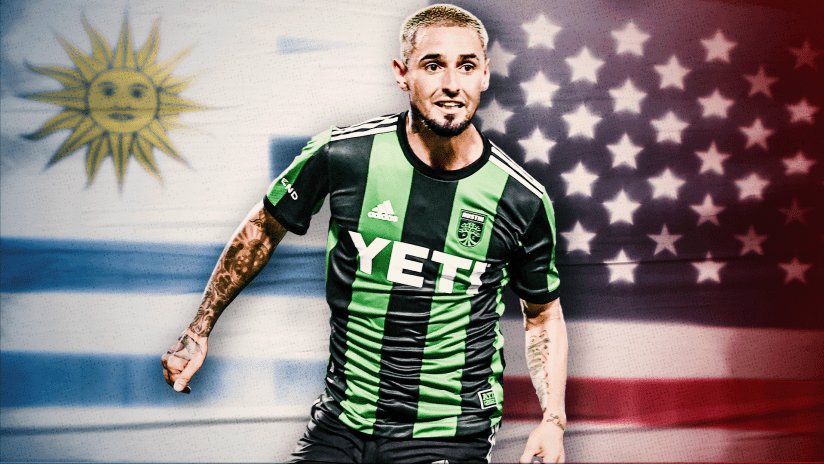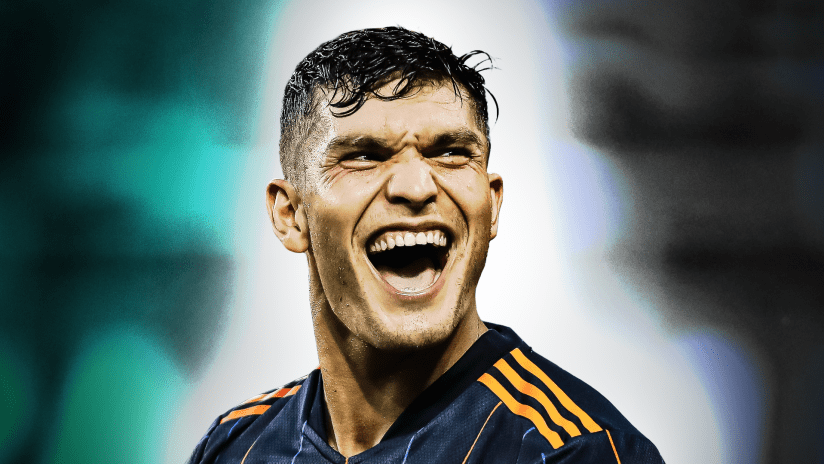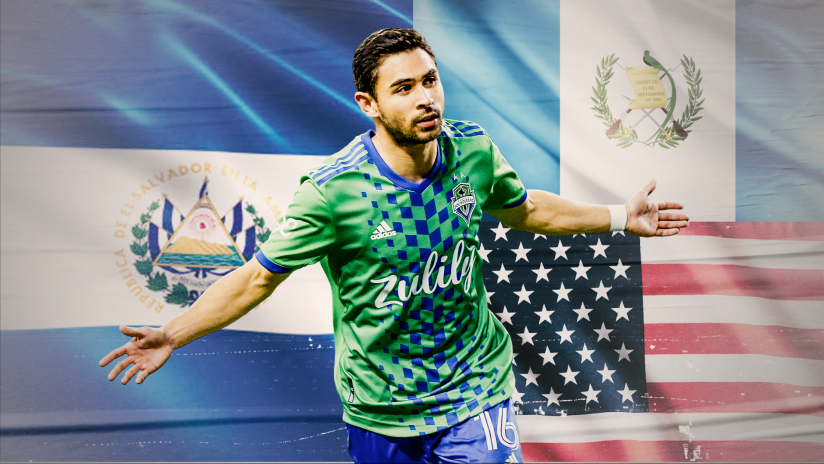I was born in Uruguay, though my memories of it are pretty faint.
We emigrated from Montevideo to Leominster, Massachusetts, a small town an hour’s drive outside Boston, when I was only 5 years old. It felt like a different planet from our homeland. Thankfully it didn’t take me long to find out that there were pieces of home all around me.
Probably about 75% of our neighborhood was from Uruguay, and there were also a handful of Brazilians and people from other Latin American countries. As a little kid in a new place, it was really nice that I could still meet people who knew Spanish, speak Spanish to friends – and play soccer, of course.
We lived in a small apartment complex with a pool in the center, and right next to it there was this little patch of grass. It wasn't really meant for sports – it wasn’t even a rectangle shape – but we made it our field.
LEE ESTA NOTA EN ESPAÑOL AQUÍ
Some days it was our football field, some days it was a baseball field, whatever sport we wanted to play, even hide-and-seek! But soccer most often. And if it wasn't there, then we’d be playing street soccer on asphalt – right next to the dumpsters, where we had one basketball court. We were playing soccer 24/7. My friends and I would get out of school and just play for hours, from 4:00 until 8:00, 9:00 at night if our parents let us. Then we’d wake up in the morning on weekends and go play some more.
We made up all kinds of games and contests. We did something we called ‘rivalry games,’ where we would have eight people wear white jerseys and eight people wear another color of jerseys, even put numbers on them. We made it into a little soccer scene and eventually it seemed like everybody was coming, even adults who would watch us run around and be thankful it was keeping us out of trouble.
We got so into it. I still have friends from back then, and every so often we reminisce, like, what were we doing? Creating jerseys, making up goals, just to make us happy. It's something that we’ll always look back on and smile. I can definitely say that little piece of South America in Massachusetts helped me get to where I am now.
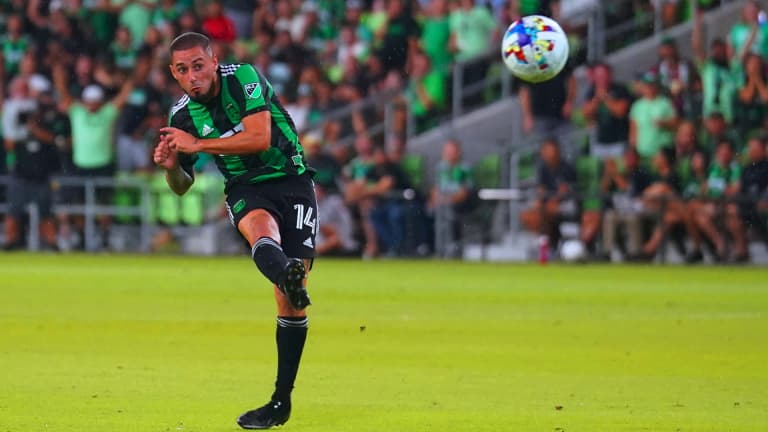
Turning pro
I was lucky to get an early start. My dad played professional soccer back in Uruguay, and he first introduced me to a ball when I was 2 years old. I had just barely learned to walk, but he would line up empty two-liter soda bottles like bowling pins at one end of a hallway. I would take 10 steps back or so and kick the soccer ball at them until they all fell down, and then I’d put them back up and do it all again, and again, and again.
All that time on the ball from such a young age, it added up. My feet got quicker, my skills grew, and I always loved to dribble at opponents one-on-one. Later, as I got older, I moved up from town soccer in Leominster to club soccer, which had us traveling everywhere, to tournaments all over the US – my parents drove for hours and hours, always supporting me. My dad would always challenge me to play against older kids, and on better teams. That was the way to make me a better player. But I think it was the extra work that made the difference. After my team practices ended, I would stay and shoot around with my dad; 50, 60, 70 balls a day, usually with him – he played goalkeeper in his day – trying to save them.
My legs would get tired, but after a while it was like a machine. There's moments in my games now where I'll shoot the ball and I’ll just know if it's a goal or not, because of how it feels coming off my foot. All that repetition, all that hard work. Things started moving really fast where a scout came and watched me play. It was like, wow, this could be something I could actually pursue. I kept going and one day after a game, we got approached by the New England Revolution.
I joined their academy, and not too long after, I became their first-ever homegrown player. I was only 15 when I signed that first pro contract, and 16 when I played in my first MLS match. Today you see so many homegrowns playing all over the league, but few of us were playing with the first teams back then. In retrospect, we were pioneers, and there’s not too many left from my generation! Around that time I got called to represent Uruguay at the youth national team levels. And while I also felt a strong desire to play for the United States, it felt like a once-in-a-lifetime chance, and it's hard to not take an opportunity like that.
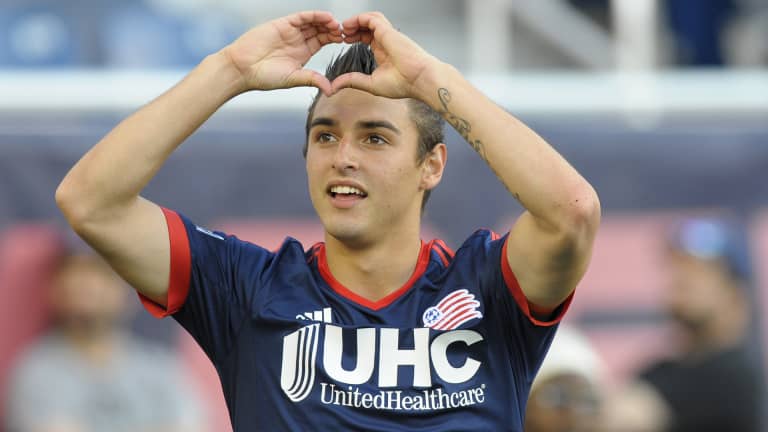
The Texas chapter
I spent more than a decade with New England, but when my last Revs contract ran out, it was time for me to leave. I had been asked to play roles that didn’t suit me and needed a fresh start. Claudio Reyna and Josh Wolff told me Austin FC wanted to use me as an attacking player, and challenged me to step up and be a big part of an expansion club. When I arrived in Texas last year, I felt I needed to prove myself again, prove that my career wasn't over, as some people thought.
I'm having so much fun here in Austin. I'm scoring and creating goals, playing to my best ability. I get challenged by the coaches, by my teammates, and the team is doing well. You gain confidence when that happens, and you can see the smile on my face when I'm playing and enjoying it. And the city, its people, culture, food, is amazing.
It wasn’t what I was expecting, but I fell in love right away. While it might seem like the opposite of Massachusetts, there’s more parallels than you’d think. You can go hiking, swimming, boating, whatever you want. Back in Leominster I had a boat, I loved to go hunting, hiking, I even drove a big truck. I didn't really have to adapt too much – except for the summer heat, and I’m still practicing my “y’all” pronunciation. But I'll get there! And the same goes with the Hispanic culture: There’s tons of Latino influence within our community, our team, our supporters, who are some of the best fans in the league and sing lots of songs and chants in Spanish.
Our locker room has many different cultures, but everybody respects one another’s. Even the players who don't really speak Spanish are learning bits and pieces. We have a little show called “Mate Con Vos,” which I host with Maxi Urruti and Sebastian Driussi. They're from Argentina, I’m from Uruguay, so we all drink mate, and we bring on someone from another background to try it and chat with us. Usually they don’t really like the taste, but for us, it's nice! Austin already feels like home, both for me and my daughter Maria and son Liam, and I hope to stay here for the long term.
The US gave me a huge opportunity to come here and live another life, but I still carry pieces of Uruguay with me. To me, they're both home – it's a 50/50, there's no one or the other. And that's what I try to do with my kids. I teach them Spanish, give them food from Uruguay, and they love it. And to this day, whenever I see my parents or I enter another Uruguayan’s house, I give a kiss on the cheek.
That's something that we do in Uruguay, and sometimes people lose things like that, but I don't. I want to keep that going.

